What is Mortar Made Of?
What mortar is important for any building project? Let us explain to you the key ingredients: cement, lime, sand, and water. Each ingredient helps...
4 min read
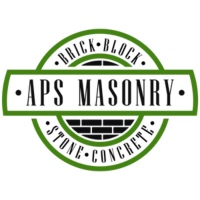 Alec Serowatka
:
Jul 26, 2023 11:34:59 AM
Alec Serowatka
:
Jul 26, 2023 11:34:59 AM
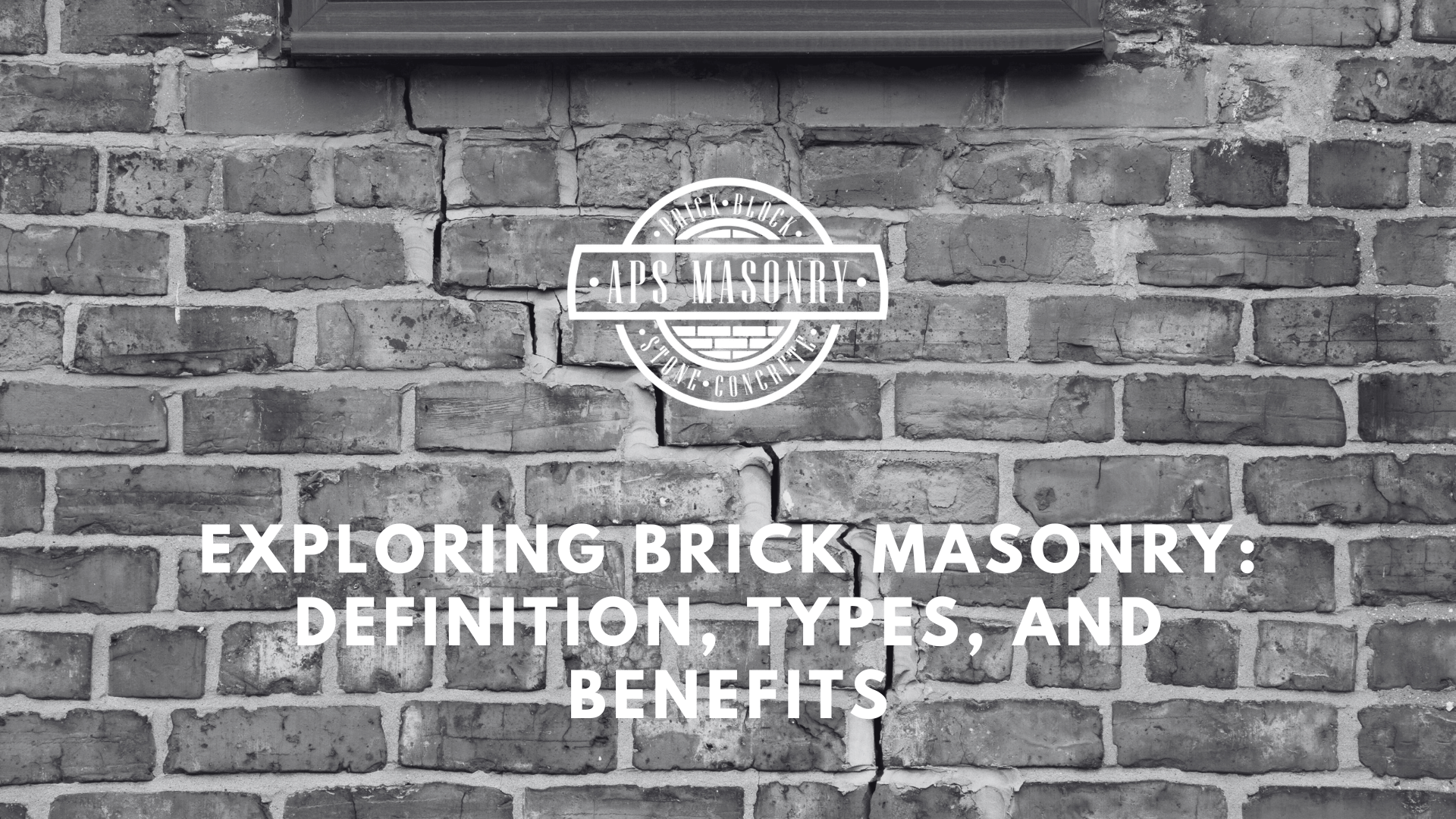
Philadelphia’s masonry is unforgiving. Brick, stone, block, concrete, and mortar all behave differently in our city’s harsh freeze–thaw cycles.
Homes shift. Foundations settle. Original joints crumble after decades of weather. The right tools, the professional masonry tools, are what determine how long repairs or new construction actually hold up.
This article isn’t a DIY guide, rather, it’s a look behind the scenes so you understand how APS Masonry Contracting uses advanced masonry tools, 2026 technology, and proven craftsmanship to protect your home.
Not sure what your masonry needs? APS is here to help with honest guidance and zero pressure. Just reach out and we’ll walk you through your options.
Every tool below affects the life, safety, and durability of your masonry. These descriptions are for homeowners, to show why APS invests in tools that guarantee long-term results. No shortcuts. No cheap equipment. No excuses.
Before any brick or stone is set, accurate measurements determine structural safety. APS uses lasers designed for precision because Philadelphia walls rarely run perfect lines. Accurate measurement reduces future cracking, misalignment, and costly repairs.
A level ensures walls sit straight, but smart 2026 versions self-correct and project lines over long distances. This improves the ease and accuracy of aligning brick, block, and stone, which is critical for the durability of homes that have shifted over time.
Straight corners aren’t just aesthetic. They control load distribution. APS uses heavy-duty squares designed for professional use so every angle supports your structure properly.
Vertical accuracy keeps walls strong. APS blends old-world plumb bobs with digital systems to ensure perfect vertical alignment, especially important in older rowhomes where settling is common.
A must-have mason line keeps long stretches of brick perfectly straight. Cheap lines stretch or sag. APS uses professional-grade nylon lines that stay taut, ensuring precise shaping and clean alignment from the first brick to the last.
Philadelphia’s local stone, especially Wissahickon schist, requires exact shaping. APS uses balanced, professional stonemason hammers that create clean cuts without weakening the stone.
Brick, block, and concrete must be cut cleanly to prevent weak spots. APS uses high-performance saws with diamond blades and dustless technology, a 2026 requirement that protects workers and homes from silica dust.
Used for detail work, block trimming, and precise adjustments. APS relies on hardened steel chisels that maintain their edge, allowing clean application and ensuring every piece fits securely.
This tool drills and chisels with power. APS uses it for anchor points, selective demolition, and removing old mortar cleanly, all tasks that require professional equipment to avoid structural damage.
A brick hammer is essential for splitting and trimming without shattering older masonry. APS uses hammers built for long performance, ensuring controlled, accurate work.
APS uses masonry trowels in different sizes to control mortar placement, bond strength, and final finish. Professional trowels provide better balance and precision, which improves the lifespan of the mortar joints holding your wall together.
Floats smooth wet concrete and grout, creating uniform surfaces that resist cracking. Anti-stick designs introduced for 2026 help APS create cleaner, stronger finishes with less drag.
Used for cleaning joints, dusting surfaces, and prepping old brick before repair. APS uses stiff-bristle brushes designed to remove debris without damaging historic materials.
Consistent mortar = strong masonry. APS uses commercial mixing pans engineered for better durability and temperature stability, essential in Philadelphia’s fluctuating weather.
Jointers shape mortar joints, which affects water resistance and overall appearance. APS uses professional jointers to create tight, uniform styles that prevent water infiltration and protect against freeze–thaw damage.
Machine-mixed concrete prevents weak spots. APS uses high-efficiency mixers that ensure every batch is consistent, critical for slabs, footings, and walkways.
Used to level uneven surfaces. This ensures new application bonds properly and lasts longer, especially on older Philadelphia foundations.
A straight edge keeps mortar beds, stone courses, and concrete surfaces even. APS uses heavy-duty aluminum versions that hold true over time.
This tool removes hardened mortar, rust, and debris from surfaces before repair, creating strong bonding conditions. APS uses wire brushes that provide controlled cleaning for delicate historic materials.
Professional scaffolding improves stability, worker safety, and installation accuracy. APS uses advanced aluminum scaffold and clamps designed for both safety and performance across multi-story Philadelphia job sites.
Ready for masonry work that’s built to last? APS uses the right tools, proven techniques, and years of Philadelphia experience to protect your home. Request a quote today.
Take a look at some of our most recent work.
Dustless cutting tools now mandatory for safer work
Battery-powered systems replacing outdated corded tools
High-strength mortar blends built for freeze–thaw climates
AI-assisted layout tools improving accuracy on uneven homes
Stone veneer styles rising in residential neighborhoods
Increased demand for repointing & structural restoration in aging rowhomes
APS stays ahead of these trends to ensure your project meets modern safety, environmental, and performance standards.
Using the right tools isn’t about convenience, it’s about protecting the structural integrity, appearance, and long-term value of your property. APS invests in professional masonry tools because your home deserves work that stands up to weather, age, and time.
Better alignment means fewer cracks
Better mortar application means stronger walls
Better cutting tools mean cleaner, safer installation
Better scaffolding means safer, faster, more accurate results
Everything we use is designed for performance, precision, durability, and safety, so your masonry lasts decades.
Don’t gamble with your masonry. APS Masonry Contracting delivers expert brick, stone, block, and concrete work backed by the right tools and the right experience. Contact us now or call 215 559-4582 for a professional estimate and get quality that lasts.
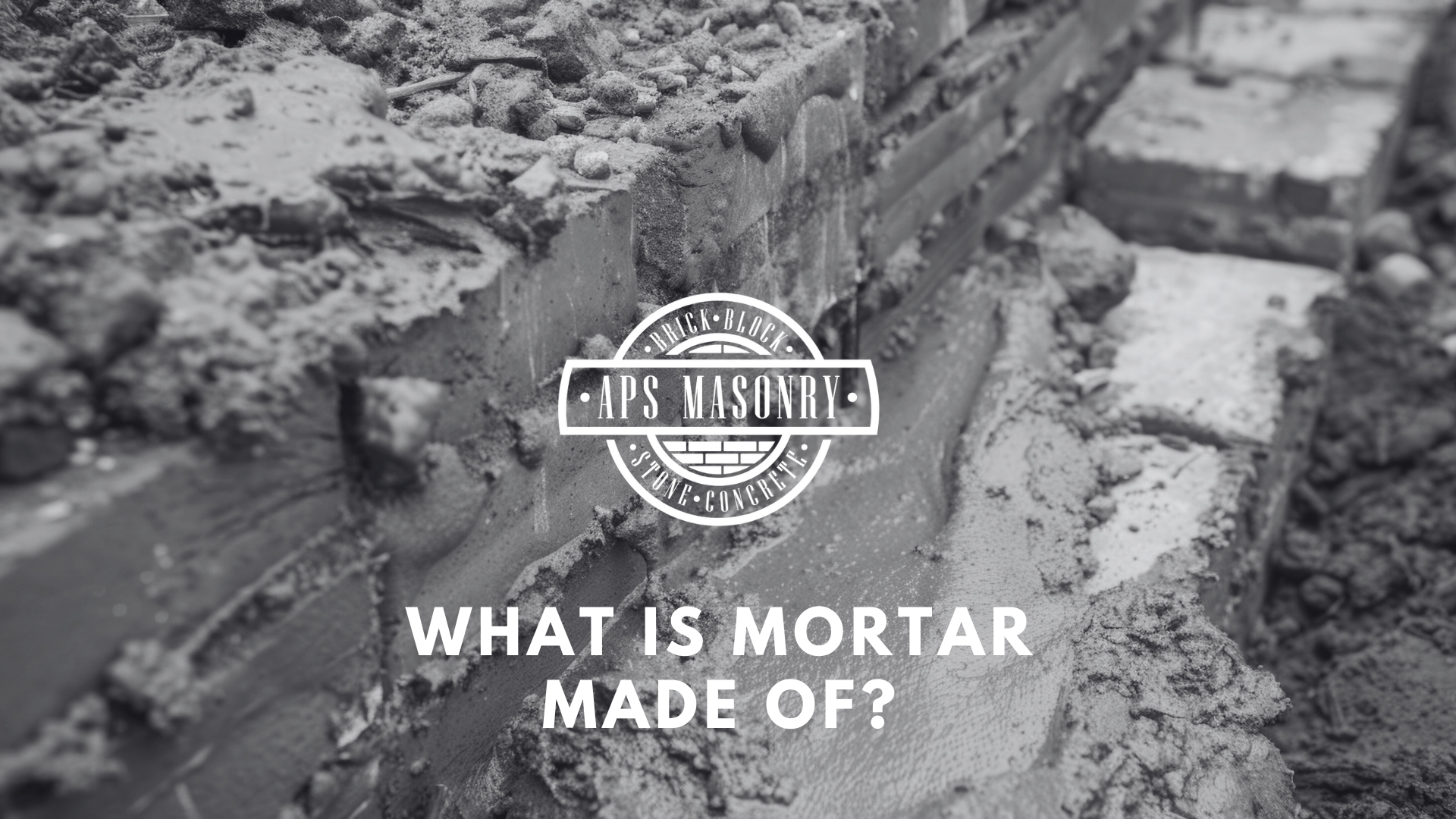
What mortar is important for any building project? Let us explain to you the key ingredients: cement, lime, sand, and water. Each ingredient helps...
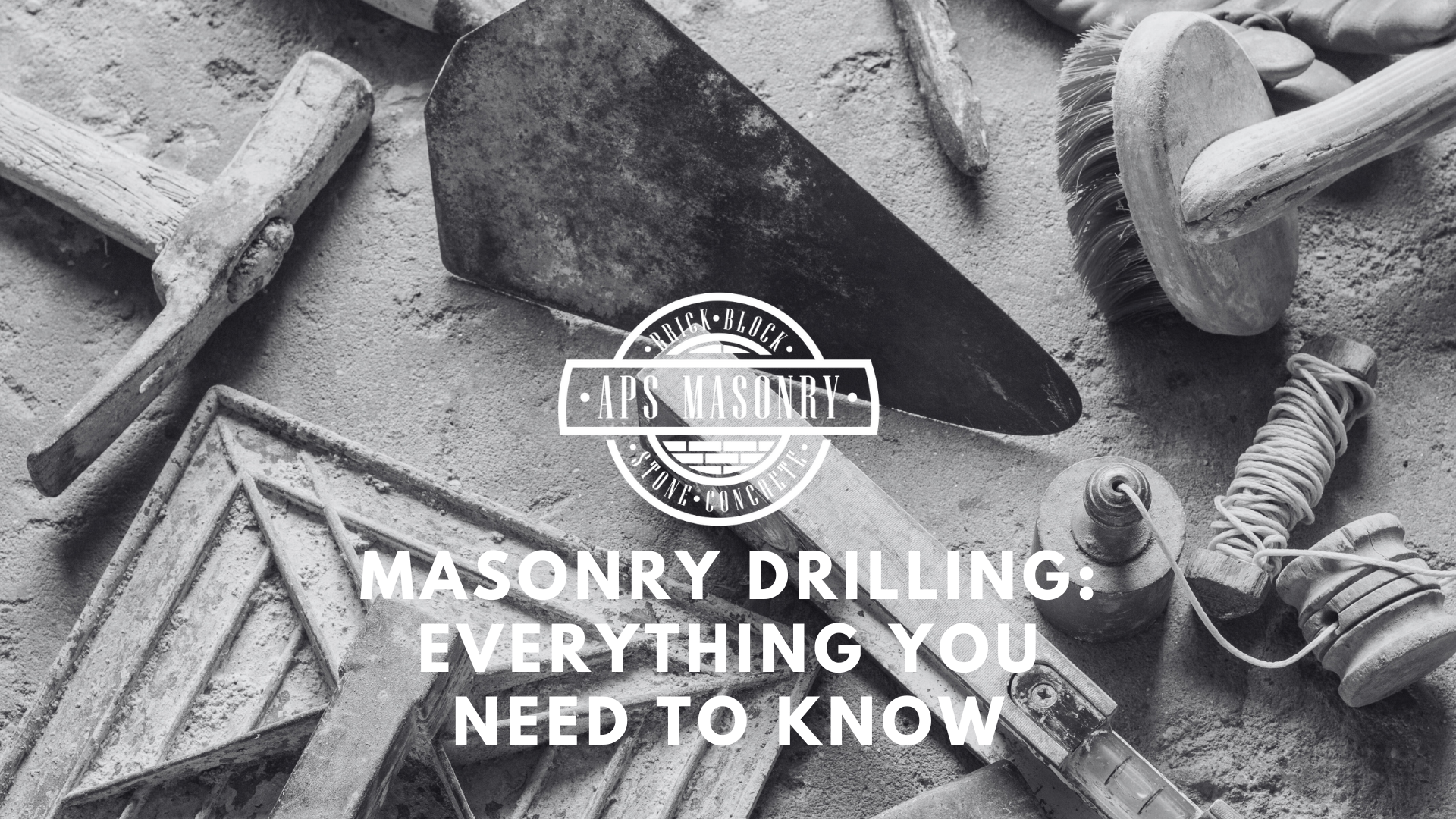
Masonry drilling is an important skill in both construction and various DIY projects. This process involves creating holes in materials like brick,...
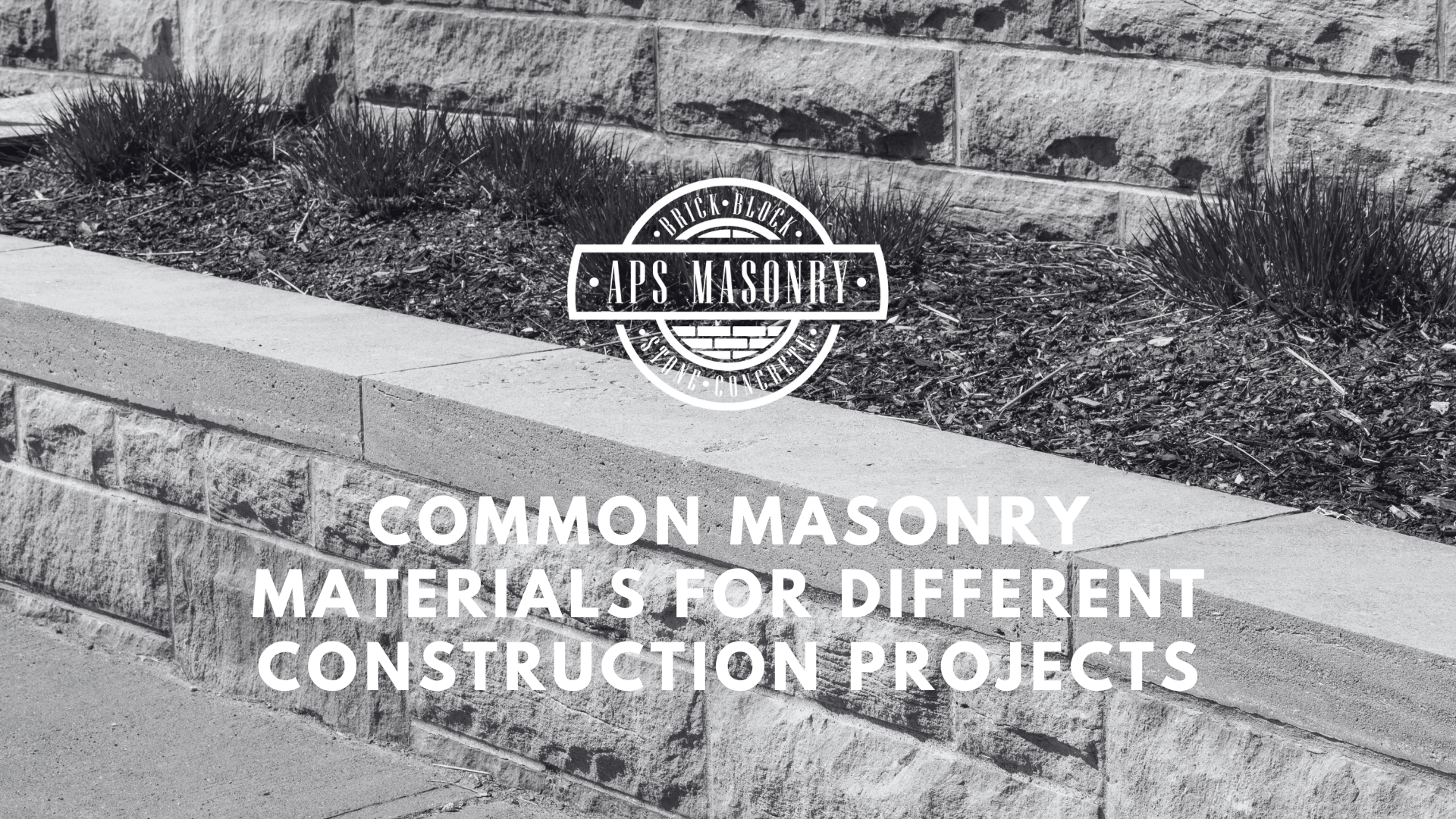
Choosing the right masonry materials is important in guaranteeing a project's durability, strength, and overall success. Masonry work is a technique...